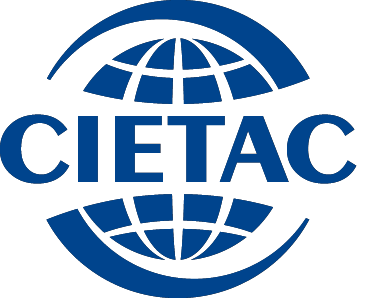“This article first appeared in the June 2024 issue of the Hong Kong Lawyer, the official journal of The Law Society of Hong Kong.”
仲裁庭关于违法行为的裁决是否与公共政策相冲突?
在任何司法管辖区,经验丰富的仲裁员和仲裁从业者都需要注意对裁决提出质疑程序的复杂性。 在原讼法庭最近作出的一项判决中,G -v- N案揭示了以公共政策理由对仲裁庭有关违法行为免责辩护的裁决提出质疑的细微差别。
香港原讼法庭最近在G -v- N [2023] HKCFI 3366案中作出的判决是原讼法庭以公共政策为理由下令发还重审的最新案例之一。 该判决为仲裁庭有关违法行为免责辩护的裁决是否及在何种程度上受香港法院审查提供了有用的指引,该裁决本质上涉及公共政策的考虑。
根据香港《仲裁条例》(第609章),除非有关仲裁协议明文规定《仲裁条例》附表2第5至7条的条文适用,否则不得就法律问题对仲裁裁决提出上诉。
然而,根据《仲裁条例》第81条(《贸法委示范法》第34条),香港高等法院可基于某些有限的特定理由撤销仲裁裁决,包括裁决与公共政策相抵触。 香港法院亦有权将整项裁决或裁决的某部分发还给仲裁庭重新考虑,或采取仲裁庭认为将纠正撤销决定的理由的任何行动。
与一贯支持仲裁的做法一致,香港法院先前选择发还而不是撤销有缺陷的仲裁裁决,让仲裁庭有机会纠正裁决中的任何错误或缺陷。
案件背景
该案涉及两家公司实体G和N,它们均在英属维京群岛(BVI)注册成立。G为K的间接全资附属公司; K透过G持有N的股份,为N第一大股东; N的其余股份由IZ和其他股东持有。
IZ在N其他股东的支持下,召开股东大会,以变更N的管理层。 为了使K获得必要的票数以否决股东大会的要求,N(当时由K实际控制)与G公司签订了一份证券购买协议,以146,868,653美元的价格(对价款)向G配发16,051,219股额外股份(配股)。
证券购买协议受香港法律管辖,并包含香港仲裁条款。
BVI诉讼程序
IZ将此事告至BVI法院,以撤销配股。Jack J. 法官于2021年3月3日作出判决,BVI法院撤销了该配股,理由是该配股违反了BVI《商业公司法》第121条。 根据BVI法院的命令,N召开了一次特别股东大会,导致N的管理层发生变化。
裁决
BVI的判决下达后,G在香港对N公司提起仲裁,要求归还先前根据证券购买协议支付的对价款,对N提出不当得利或完全不对价的个人申索,以及基于根本错误产生的推定信托的所有权申索。N回应称,不应容许G收回对价款,因为配股有违法之处,即BVI法院在IZ提起的诉讼中认定违反第121条的行为。
香港仲裁庭在其第一份部分裁决中认定,配股是非法的,并以违法行为免责辩护适用为由,驳回了G的申索要求。在此过程中,仲裁庭采用了Tinsley -v- Milligan [1994] 1 AC 340案中确立的有关违法行为的「依赖方法」。该案认为,如果一个人必须直接依赖违法行为才能胜诉,那么他一般不应获得补救。然而,就在裁决前几天,香港上诉法庭在Monat Investment Ltd -v- All Person(s) In Occupation of Part of The Remaining Portion of Lot No 591 in Mui Wo DD 4 No 16 Ma Po Tsuen, Mui Wo, Lantau Island [2023] HKCA 479案中决定, 英国最高法院在Patel -v- Mirza [2017] AC 467案中确立的「一系列因素方法」代表香港关于违法行为的法律,而不是Tinsley案中的「依赖方法」(已在香港适用)。
原讼法庭的判决
法官陈美兰认为,法庭有权复审仲裁庭有关公共政策的决定,如果法庭认为该裁决违反香港的公共政策,则可撤销该裁决。
在这方面,陈美兰法官承认有理由反对撤销该裁决。具体而言,根据《纽约公约》和《示范法》维持裁决的终局性非常重要。此外,枢密院先前在Betamax-v-State Trading Corp[2021] UKPC 14案中认为,该案下级法院在审查该案的仲裁员关于违法行为的决定时存在错误。此外,即使仲裁庭误解了相关的公共政策,这充其量也只是法律错误,超出了法庭的审查范围。
尽管如此,经过仔细考虑案件事实后,法官认为她有权对该裁决进行复审。
裁决为何被复审?
法庭有权复审该裁决,因为法庭有权力和责任考虑该裁决是否违反香港现行的公共政策。此外,复审亦澄清了仲裁庭对公共政策的考虑是否符合Patel案中的指导原则,该指导原则已得到上诉法庭认可,适用于香港。
违法问题的判定可以分为两个不同的阶段。第一阶段涉及仲裁庭为了查明任何不合法性而对事实和法律进行调查的结果。第二阶段涉及监督法院或上级法庭对仲裁庭裁定的任何违法行为的影响进行确定。在对Betamax进行适当分析后,枢密院仅认为香港法院不能复审仲裁庭有关第一阶段的决定。然而,在第二阶段,如果仲裁庭认定存在某些违法行为,香港法院仍然可以确定该违法行为(仲裁庭所认定)是否会导致在香港执行裁决会违反公共政策。香港法院的这项分析不会影响或削弱裁决的最终性,因为香港法院不会复审或推翻仲裁庭的任何法律或事实裁决,这些裁决仍然是最终并具有约束力的。
在本案中,G并没有质疑仲裁庭对事实和法律的认定,包括违反第121条的认定。相反,G争辩,根据Patel案的「一系列因素方法」,仲裁庭以上述理由拒绝给予G济助的决定是完全不相称的,会产生裁决违反公共政策的不公正结果。因此,这是法院可以而且应该考虑和决定的问题。
最终,法官没有决定该裁决是否与香港的公共政策相冲突。相反,法官认为,根据案件的事实,更合适的做法是暂停撤销程序,并将此事发还仲裁员,让仲裁庭有机会根据Patel案的做法重新考虑其决定,并采取仲裁庭认为可消除撤销理由的行动。
关键要点
违法问题的判定可以分为两个不同的阶段。第一阶段涉及仲裁庭为了查明任何不合法性而对事实和法律进行调查的结果。第一阶段显然属于仲裁庭的实质权限,法院不能对其进行审查。
在第二阶段,监督法院评估仲裁庭认定的任何违法行为的影响。法院随后决定仲裁庭在这方面的裁决是否与香港的公共政策相冲突。该评估是使用Patel案例的「一系列因素方法」进行。虽然该裁决的重点是试图根据《仲裁条例》第81条(也称为《示范法》第34条)宣布仲裁裁决无效,但陈美兰法官的判决暗示,对执行仲裁裁决的质疑也可以采用类似的方法。正如《仲裁条例》第86(2)(b)条和第89(3)(b)条所述,可以裁决违反公共政策为由提出异议。
尽管如此,值得注意的是,按照法庭一贯支持仲裁的立场,即使G -v-N案中仲裁庭未能采用Patel测试,原讼法庭还是选择将裁决发还仲裁庭重审,而非直接判定裁决违反公共政策。
因此,实际上,香港法院可能不太倾向推翻仲裁庭所作的决定,因为仲裁庭在违法行为问题上采用了正确的Patel检验标准。这个问题需要香港法院今后在遇到适当的案件时作出裁决加以澄清。
Is an Arbitration Tribunal's Decision on Illegality in Conflict With Public Policy?
Experienced arbitrators and arbitration practitioners, based in any jurisdiction, need to be mindful of the intricacies of the processes for challenging an Award. In a recent decision by the Court of First Instance (CFI), the case of G -v- N sheds light on the nuanced challenge based on public policy grounds against an arbitral tribunal’s decision concerning an illegality defence.
The recent decision of the Court of First Instance of Hong Kong (“CFI”) in G -v- N [2023] HKCFI 3366 is one of the latest instances where a remission was ordered by the CFI, in the context of a public policy challenge. This decision provides useful guidance on whether and to what extent, a tribunal’s decision on an illegality defence which by its nature involves consideration of public policy, is subject to the Hong Kong Court’s curial review.
Under the Arbitration Ordinance (Cap. 609) of Hong Kong (“AO”), unless the relevant arbitration agreement expressly provides for application of the opt-in provisions in sections 5-7 of Schedule 2 of the AO, an arbitral award cannot be appealed on a question of law.
However, under section 81 of the AO (Article 34 of the Model Law), an arbitral award may be set aside by the Hong Kong High Court on certain limited specified grounds. This includes where the award conflicts with the public policy of Hong Kong. It also provides the Hong Kong Court with the power to remit the matter back to the arbitral tribunal for reconsideration, or to take any action that the tribunal believes will rectify the reasons for setting aside the decision.
Consistent with its usual pro-arbitration approach, the Hong Kong Court has previously opted to remit, rather than set aside, defective arbitral awards. This allows the tribunal an opportunity to correct any errors or deficiencies in the awards.
Context of the Case
The case involves two corporate entities, G and N, both incorporated in the British Virgin Islands (BVI). G is an indirect wholly-owned subsidiary of K; K held the shares in N through G and was N’s largest shareholder; and the rest of the shares of N were held by IZ and other shareholders.
IZ, with the support of other shareholders of N, called a shareholders’ meeting for the purpose of changing the management of N. For the purpose of giving K the necessary votes to defeat the requisition for the shareholders’ meeting, N (which was then under the de facto control of K) entered into a Securities Purchase Agreement (“SPA”) with G for the allotment of 16,051,219 extra shares to G (“Allotment”) in exchange for the price of US $146,868,653 (“Consideration Monies”).
The SPA was governed by Hong Kong Law and contained a Hong Kong arbitration clause.
The BVI Proceedings
IZ took the matter to court in the BVI to set aside the Allotment. In a ruling by Judge Jack J. on March 3, 2021, the BVI Court set aside the Allotment on the ground that the Allotment violated Section 121 of the BVI Business Companies Act. Pursuant to an order of the BVI Court, a special shareholder meeting of N’ was called, leading to a change in N’s management.
The Award
After the judgment in the BVI was handed down, G commenced arbitration in Hong Kong against N, seeking restitution of the Consideration Monies previously paid under the SPA for a personal claim against N for unjust enrichment or total failure of consideration, as well as a proprietary claim based on a constructive trust arising out of fundamental mistake. In response, N claimed that G should not be permitted to recover the Consideration Monies because the Allotment was tainted by illegality, namely the breach of Section 121 identified by the BVI Court in the proceedings commenced by IZ.
By its 1st Partial Award, the Hong Kong seated arbitral tribunal held that the Allotment was illegal and dismissed G’s claims on the basis that the illegality defence applied. In doing so, the Tribunal applied the “reliance approach” regarding illegality established in Tinsley -v- Milligan [1994] 1 AC 340. This case held that a person should not generally be granted a remedy where he has to rely directly on unlawful conduct to succeed. However, just a few days before the Award, the Hong Kong Court of Appeal held in Monat Investment Ltd -v- All Person(s) In Occupation of Part of The Remaining Portion of Lot No 591 in Mui Wo DD 4 No 16 Ma Po Tsuen, Mui Wo, Lantau Island [2023] HKCA 479 that the “range of factors approach” established by the UK Supreme Court in Patel -v- Mirza [2017] AC 467, rather than the “reliance approach” in Tinsley (which had been applied in Hong Kong), represented Hong Kong law on illegality.
G then applied to the High Court of Hong Kong to set aside the Award on the ground that, amongst other things, the Award was in conflict with the public policy of Hong Kong on illegality.
Decision of the Court of First Instance (CFI)
Mimmie Chan J. held that the Court was entitled to review the Tribunal’s decision regarding public policy and, if the Court considered the Award to be contrary to the public policy of Hong Kong, to set aside the Award.
In this regard, Mimmie Chan J. accepted that there were sound arguments against setting aside the Award. Specifically that it was important to maintain the finality of awards under the New York Convention and the Model Law. Also, it was previously held by the Privy Council in Betamax -v- State Trading Corp [2021] UKPC 14 that the Court below in that case was in error in reviewing the decision of the arbitrator in that case on illegality. Furthermore, even if the Tribunal had misunderstood what the relevant public policy was, this was at best an error in law, which is outside the scope of the Court’s curial review.
Nevertheless, after careful consideration on the facts of the case, the learned judge held that she was entitled to review the Award.
Why was the Award Reviewed?
The Court was entitled to review the Award because it was in its power and duty to consider whether the Award was contrary to the current public policy of Hong Kong. Also, the review clarified whether the Tribunal’s consideration of public policy complied with the guidelines in Patel, as now recognized by the Court of Appeal as applicable in Hong Kong.
The determination of the question of illegality can be divided into two distinct stages. Stage one involves the arbitral tribunal’s findings of fact and law for the purpose of ascertaining any unlawfulness. Stage two involves the determination by the supervisory, or curial, Court of the effect of any illegality found by the tribunal. On a proper analysis of Betamax, the Privy Council only held that the Hong Kong Court cannot review the tribunal’s decision regarding stage one. However, at stage two, in cases where some illegality is identified by the tribunal, it remains open for a Hong Kong Court to determine whether the effect of the illegality (as found by the tribunal) is to render enforcement in Hong Kong contrary to public policy. This analysis by the Hong Kong Court does not affect or undermine the finality of the award because the Hong Kong Court is not reviewing or overturning any findings of law or fact of the tribunal, which remain final and binding.
In the present case, G did not challenge the Tribunal’s findings of fact and law, including the finding that there was a breach of Section 121. Rather, G only sought to argue that the Tribunal’s decision to deny relief to G on the basis of said breach was wholly disproportionate and would produce an unjust result that the Award would be contrary to public policy in accordance with the “range of factors approach” in Patel. Thus, this was a question that the Court could, and should, consider and decide.
Ultimately, the learned judge did not proceed with deciding whether the Award was in conflict with the public policy of Hong Kong. Rather, Her Ladyship considered that, on the facts of the case, the more appropriate action was to suspend the set aside proceedings and remit the matter back to the arbitrator. This would give the Tribunal an opportunity to re-consider its decision in the light of the approach in Patel and to take such action, as in the Tribunal’s opinion would eliminate the ground for setting aside.
Key Takeaways
The determination of the question of illegality can be divided into two distinct stages. Stage one involves the arbitral tribunal’s findings of fact and law for the purpose of ascertaining any unlawfulness. Stage one is clearly within the substantive purview of the tribunal and cannot be reviewed by the Court.
In the second stage, the supervisory court assesses the impact of any illegality identified by the tribunal. The court then decides if the tribunal’s decision in this regard is in conflict with Hong Kong’s public policy. The assessment is made using the “range of factors approach” outlined in the Patel case.
While the ruling focused on an attempt to invalidate an arbitral award under section 81 of the Arbitration Ordinance (AO) – also known as Article 34 of the Model Law – Mimmie Chan J.’s judgment hints that a similar approach may be taken for challenges against enforcing arbitral awards. Such challenges could be based on the grounds that the award violated public policy, as outlined in sections 86(2)(b), 89(3)(b) of the AO.
Nonetheless, it is worth noting that, in line with its usual pro-arbitration stance, even though the Tribunal in G -v- N failed to apply the Patel test, the CFI chose to remit the Award back to the Tribunal for re-consideration, as opposed to directly deciding the public policy challenge of the Award.
Therefore, it may be that practically, the Hong Kong Court will not be inclined to overturn the decision of an arbitral tribunal that has applied the correct Patel test on illegality. This is an issue that needs to be clarified by future decisions of the Hong Kong Court when a suitable case come along.











